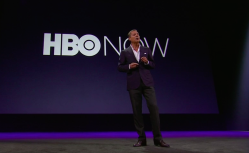It seems like the content providers just can’t figure out content distribution. Piracy is rampant, yet the options to get content are more confusing and siloed than ever before. Consumers are being driven away from the traditional cable/satellite subscription model and towards a solution rife with disparity. This isn’t a problem limited to just television, movie content seems to be annoyingly unavailable when and where you want it. Can anyone get this right?
HBO – what have you done?
There’s no denying HBO is a juggernaut content provider. It sits atop the premium cable channels as king with “Game of Thrones” leading the charge. Despite this great content, they have a massive distribution problem. At $15-$18 a month for the channel, they are finding a lot of people want the content and don’t want to pay for it. As evidence, “Game of Thrones” was the top most torrented show of 2014.
HBO’s latest announcement though is that it will simulcast “Game of Thrones” across several countries, which is a page ripped from the record industry’s latest move. There is a big assumption here that people just want to see it immediately and, if they can’t, they will pirate the show. More likely, people are just looking for it immediately because they are worried it will get pulled. The more savvy pirates have schedulers that just constantly check for content on torrent sites or UseNet groups.
This quote from HBO’s CEO Richard Plepler reveals a common content delivery misperception that compounds the issue:
“We see a big opportunity for a stand-alone HBO product around the world,”
This shows a massive lack of understanding regarding HBO’s place as a content provider vs. a distributor, like DirecTV, Netflix or Amazon. Instead of moving towards a model where a consumer can pick from a range of distributors and still get to content, consumers are now forced to choose a content provider on a specific platform, but still at the same rate.
This brings us to HBO Now and Apple TV. HBO had a massive opportunity to not only embrace ‘cord-cutting’ consumers who have dropped their cable/satellite subscription, but establish itself as a ubiquitous and portable solution across platforms. Unfortunately, it has done the opposite. With this announcement, it has out-priced itself by offering HBO Now at $15/month and offered the solution to only Apple users, isolating everyone else. They could have built an application across platforms (including Google Chromecast, Xbox, PlayStation, Amazon Fire TV Stick, Roku, etc.). This move will not stop piracy.
What HBO should have done was offer the subscription at a lower rate than its cable/satellite providers and offered it on more platforms. Leading the charge for content ubiquity over their own provider network would’ve opened up other premium cable channel providers (Cinemax, Showtime) to do the same. Even AMC, another juggernaut content provider of late, could’ve gotten into the game. This could have ultimately forced satellite and cable providers to start lowering their subscription costs as well. When more people have more options to get content, the cost is driven down at the distribution level, but raised at the content provider level. When that happens, content distributors subscriptions might go up due to the lower cost and variety of options.
At the far end, we could have all started managing our own content subscriptions. What a wasted chance!
Powers at PlayStation
I finally feel like I got on the boat early! I’ve been reading the “Powers” comic book since the first issue. I was extremely excited to see that it was being developed into a TV show, but there’s just one problem. I have an Xbox One, and “Powers” is only airing on the PlayStation network. So now my only legal choice is to wait and see if/when it comes out in another format. I certainly am not dropping hundred of dollars on a PS4 when I’ve made my console choice and I’m not the only one!
I could choose to subscribe to PlayStationPlus for $50/year and watch “Powers,” but that just doesn’t make economical sense and that isn’t the point of it anyway. PlayStation (like Xbox) wants the additional content as incentive for you to subscribe. A consumer not only receives video content, but also can take advantage of the free games and other online benefits.
PlayStation has definitely guaranteed that “Powers” will be pirated by distributing it on their own network only. That, and they’ve likely doomed it to failure since it won’t reach a lot of consumers.
This is another example of a missed opportunity to drive consumers to choice and their own content subscriptions. They could have easily added Amazon Prime and Netflix as content distributors to this.
Going the Other Way
On the flip side, distributors are getting into the content provider game, which perpetuates this mess. Both Amazon and Netflix have started offering content as part of their subscriptions and both have unique hooks into their other services. Personally, I like Amazon Prime for the free shipping. The content is really just a side benefit. Even renting movies on Amazon and their free (and sparse) Prime video content isn’t worth the subscription alone. I will say though, I am really looking forward to “The Man in the High Castle.”
It makes a huge amount of sense for Netflix to offer original programming since their base consumers are looking for video streaming already, but they can’t seem to hold on to studios very well. Every month, there seems to be another article that outlines which movies and TV shows are disappearing. Amazon has this problem too, although it was very self-inflicting. Surely, Amazon and Netflix wouldn’t allow their content to be distributed via another provider!
As a result, every content provider wants to be their own distributor and every distributor wants content exclusivity and will get it via their own content. Frankly, this is killing profits and just contributing to piracy.
Let’s hop in our time machine to 1999 and find out what how we used to consume video content.
You have arrived safely in 1999 and want a movie. You have two choices, buy or rent. Regardless of the choice you make, you can visit a store any find any movie you want(depending on stock). You can even find the same movies on VHS or DVD, depending on your player. These are industry standards and consumers follow them.
Now, let’s go to an alternate timeline run by content providers and distributors.
After a rocky trip, you arrive in 1999 and want a movie. Everyone is intimately familiar with content distribution channels and know which stores carry which movies. They have to because of the complexity! You want to purchase “Back to the Future”, but you can’t find a K-Mart, which is the sole provider of Universal Pictures content sold on HD VHS. There is a Blockbuster nearby, but they only have Orion Pictures content on Laserdisc and you only have a DVD player, so it looks like you won’t be watching “Terminator” either. It looks like you’ll have to find a Suncoast Video. They sell Paramount Pictures’ DVD format. Maybe “Star Trek IV: The Voyage Home” can do the trick.
This is basically where we are heading with unique solutions for every content provider and distributor. Seriously – this is bananas! Consumers are being forced into specific platforms and options only available in certain locations. You have to stand on your head and chant 3 times to watch one movie and shake your leg in the air to watch another. For crying out loud, I can’t even purchase Big Hero 6 in 3D in the US, but I can rent it! Disney, just take my money, will you?
The Solution
As simplistic as it may sound, it apparently needs stating. All content distribution providers should have all the content they can from other content providers. This is the value they bring for now. Only then can they compete and offer unique services to enhance the content consumption piece. In the future, additional content that could be tailored via a paid experience through a content distributor could set them apart and reduce piracy (for example, HoloLens content).
The problem is, whoever manages this content kingdom will rule everything and everyone wants a piece of it. This is likely why Verizon is even taking another crack at it. So right now, consumers are stuck with too many expensive options because everyone believes their content is best and worth the money. The fact remains though that there is not one solution to rule them all, which means multiple subscriptions for customers from multiple content providers that have become distributors themselves. All the while, the entertainment industry is wondering why people pirate content.


